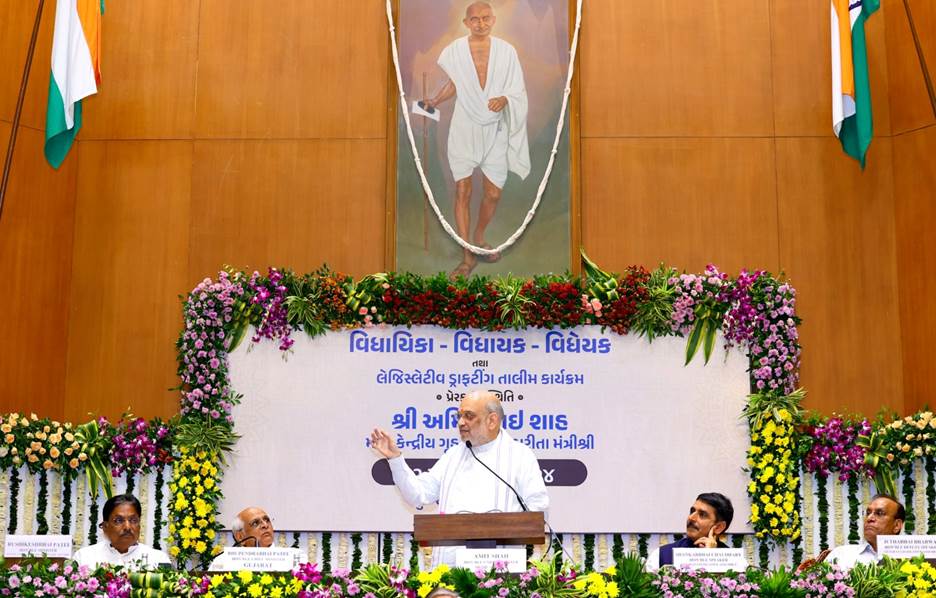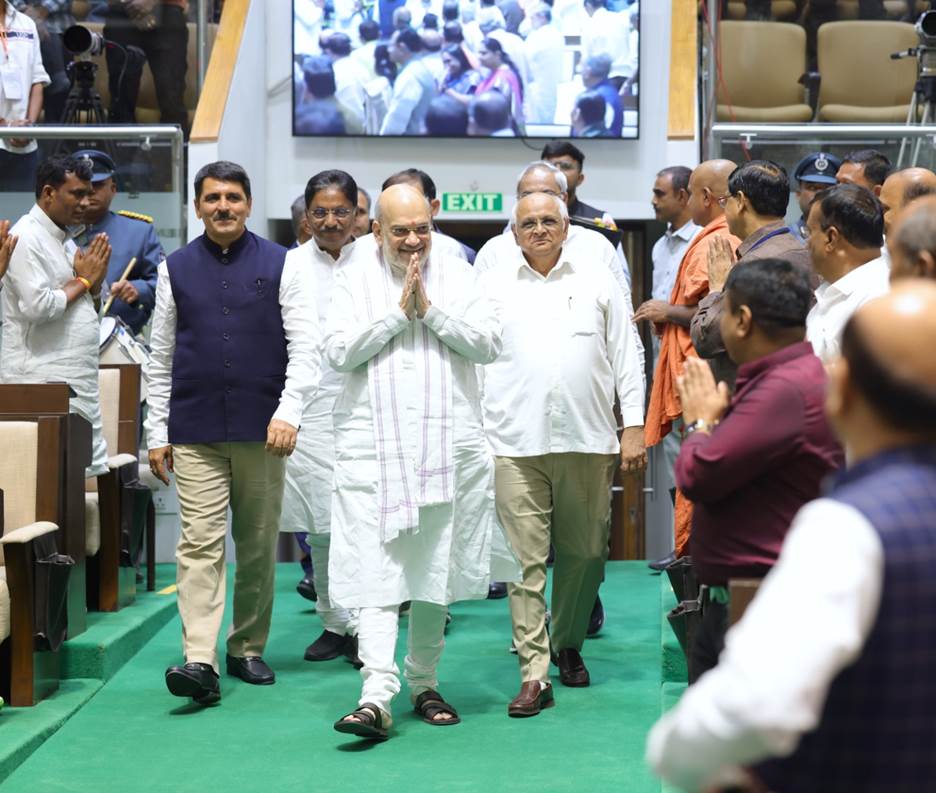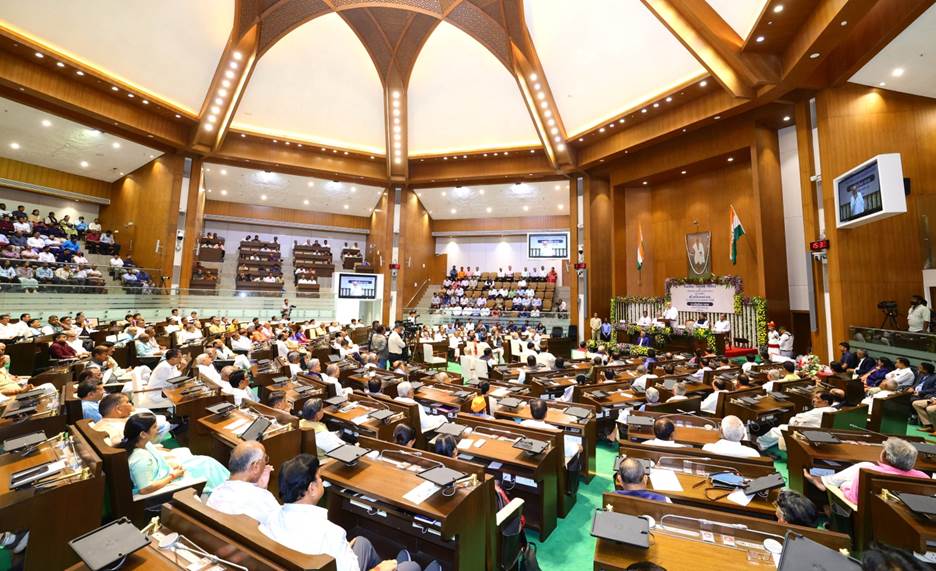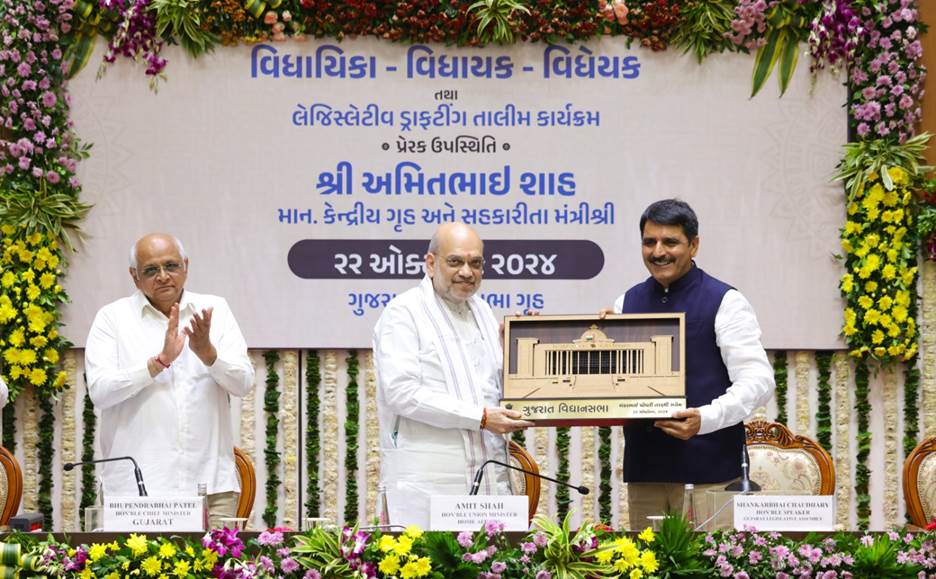Union Home Minister and Minister of Cooperation Shri Amit Shah addresses the ‘Legislative Drafting Training’ program in the Gujarat Assembly
Union Home Minister and Minister of Cooperation Shri Amit Shah addresses the ‘Legislative Drafting Training’ program in the Gujarat Assembly
Union Home Minister and Minister of Cooperation Shri Amit Shah addressed the ‘Legislative Drafting Training’ programme in the Gujarat Legislative Assembly today. Several dignitaries, including the Speaker of the Gujarat Legislative Assembly, Shri Shankar Chaudhary, and the Chief Minister of Gujarat, Shri Bhupendra Patel, were present on the occasion.

Union Home Minister said that “legislative drafting” is a very important and necessary art for a country like India which is governed by a constitution. He said that the art is gradually fading away. He mentioned that under the leadership of Prime Minister Shri Narendra Modi, the government has completed 10 years, during which India has become the center of global aspirations, with its roots in the Gujarat Legislative Assembly. Prime Minister Modi has achieved many milestones in public welfare over the past 10 years.
Shri Amit Shah noted that “legislative drafting” is the essence of law, and the decline of this art would not only be detrimental to democracy but also harm millions of people in the state and the country. He said that if drafting is done without understanding the legislative process while making laws, then the laws will never fulfill their intended purpose. The responsibility of converting a cabinet note into a bill lies with the legislative department, which eventually leads to the formation of law. Shri Shah stated that unless the process of “legislative drafting” is fully developed in a scientific manner, the chances of democracy succeeding remain unlikely.

Union Home Minister stated that if there is any ideal for “legislative drafting” in the world, it is the framing of the Constitution of India. He stated that there is no process bigger than the framing of the Indian Constitution. He emphasized that clarity is the most important aspect of the art of “legislative drafting.” The clearer the legislators are in translating their objectives into law, the smaller the gray area will be; and the less the gray area, the lesser the judicial interventions will be. Shri Shah mentioned that judicial interventions occurs where there are gray areas lacking clear legal interpretations; therefore, laws should be made clear.

Union Home Minister said Article 370, for example, was very clearly drafted by the drafting Committee of the Constitution. He said, the term “Temporary Provisions of the Constitution” was very important, meaning that it is not a “Permanent Provision,” and its removal does not require an amendment to the Constitution. It was mentioned that the President can issue a constitutional order to revoke Article 370 at any time, with a validation by a simple majority in both the Lok Sabha and the Rajya Sabha. He stated that if Article 370 was kept as a provisional constitute at that time, a two-thirds majority would have been required to remove it. However, the legislators were very clear that the temporary provision was a makeshift arrangement, and as a result, the reference for its removal was placed in Article 370(3).

Shri Amit Shah appealed to all legislators and MPs to maintain continuous contact with the legislative drafting wing and keep engaging in discussions with them. He mentioned that Prime Minister Shri Narendra Modi established a training school for “legislative drafting” within the Parliament House in 2019. He noted that an aware politician can bring about significant change through their legal understanding. Citing the example of G.V. Mavalankar, Shri Shah mentioned that despite being in the opposition, he proposed 16 reforms, all of which had to be accepted by the ruling party because they were well-considered proposals for reform. He emphasized that those involved in legislative drafting should have the abilities of a philosopher, knowledge of historical facts, and have a deep understanding of linguistics.